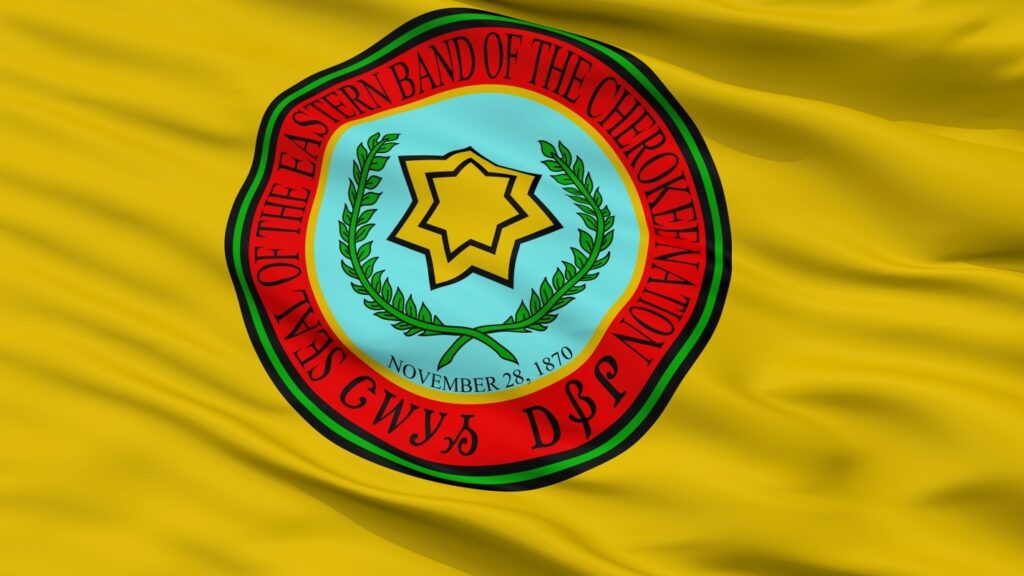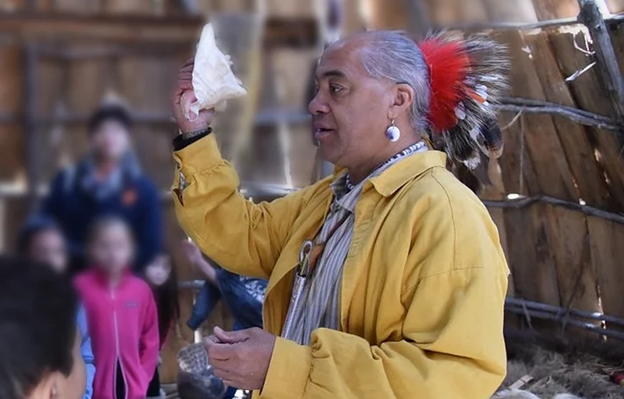CAL Ex. Dir. says these gambling measures are ‘bad business, bad recreation, bad religion, bad politics, bad economics and bad morality’

By L.A. Williams
Christian Action League
December 3, 2020
It’s estimated that over the next eight years, the American people will lose more than $1 trillion to government-sanctioned gambling. A growing portion of that wealth may come out of the pockets of North Carolinians if federal lawmakers vote to pave the way for two new casinos.
Senate Bill 790 would allow the South Carolina-based Catawba Indian tribe to cross the state line and build in Kings Mountain a $273 million, 17-acre casino project to include gaming tables and 1,300 electronic gaming machines.
House Resolution 1964, unless amended, would extend federal recognition to the Lumbee Tribe of North Carolina, opening the door for yet another casino on the eastern side of the state.
Senators Richard Burr and Thom Tillis are poised to support this massive expansion of gambling.
“I must speak plainly on this issue. By supporting these initiatives for tribal casinos in North Carolina, along with what already exists on the Cherokee reservation, our two U.S. Senators are supporting that which threatens the moral foundations of our culture, the Protestant work ethic, individual value and responsibility, and rationality,” said the Rev. Mark Creech, executive director of the Christian Action League, as he urged constituents to reach out to Burr and Tillis to try to change their minds.
“Gambling appeals to the gods of luck and chance and disregards the Sovereignty of God. It promotes superstition in our midst. It’s a violation of good stewardship in life. It stirs up a spirit of covetousness, which is at the root of all kinds of evil. It’s addictive. It’s a form of theft. Moreover, it’s a package as loaded as the dice with all sorts of hidden economic costs. It also threatens the weaker populations such as the poor, the elderly and children.”
Creech said the argument that casinos provide a myriad of benefits for impoverished Native American communities doesn’t hold up under scrutiny.
“The facts show that the windfall isn’t as great as it may appear. Non-native Americans comprise up to 85 percent of the workforce of tribal casinos and claim most of the management positions. Over the years, tribes have lost millions to dishonest gambling consultants,” Creech said. “Most of the money generated goes to the large companies that manage the casinos. In fact, some estimates indicate that 65 to 85 percent of the profits at some tribal casinos actually go to non-Native American, off-reservation sources.”
Nonetheless, that empty promise of prosperity — for both the Catawba nation and the Cleveland County economy — has been the driving force behind the development of the Catawba Two Kings Casino Resort, for which the tribe broke ground in July. The tribe, which received federal recognition in 1993, became frustrated with South Carolina’s resistance to Las Vegas-style, Class III gambling, and in 2013 filed an application with the Federal Bureau of Indian Affairs for a land trust and casino rights at the North Carolina location off of Interstate 85.
When the BIA didn’t take action, the tribe persuaded South Carolina Sen. Lindsey Graham to introduce a bill last year that would bypass the bureau and approve the application by an act of Congress. Federal approval for the casino was granted in March by the U.S. Department of Interior.

Even so, the plan remains controversial and is the subject of a lawsuit filed against the DOI by the Eastern Band of Cherokee Indians, which already operates two casinos in the state — Harrah’s Cherokee Casino in Cherokee and Harrah’s Cherokee Valley Resort in Murphy — and stands to lose some business. The EBCI claims the 17 acres where the Catawba casino is being built is ancestral Cherokee land and that the DOI’s approval defies several federal rules.
If the Catawba tribe wins the suit, the Indian Gaming Regulatory Act still requires that the tribe negotiate a gaming compact with the North Carolina governor in order to engage in Class III gaming, and Gov. Roy Cooper opposed the Catawba project when he was the state’s attorney general. Nonetheless, he’ll be required to negotiate in good faith or risk a lawsuit, which could send the case to mediators.
Not surprisingly, the Cherokee nation also opposes the development of a casino in Eastern North Carolina, which is a definite possibility if the Lumbees are granted federal recognition.
“The use of congressional authority to ignore and avoid investigation of such serious questions about the Lumbees’ authenticity is an outrageous injustice to all federally recognized tribes,” Cherokee Chief Richard Sneed told the media. “History and facts must guide the process, not politics.”
Once recognized by the federal government as a tribe, members of the Lumbee nation would not only be eligible for federal funding for housing, education, health care and other services, they would also be able to pursue gambling operations on tribal lands.
In past years, bills floated to give the Lumbee Tribe federal recognition all included language prohibiting the tribe from gambling. House Resolution 1964, approved last month by the House and now in the hands of the U.S. Senate Committee on Indian Affairs, does not.
“This bill needs to be amended to include gambling-prohibition language,” Creech said.

Creech challenged the state’s pastors and Native American leaders to take a stand against the opening of more casinos.
“Where are the pastors to speak out on such proposals? Whether conservative or progressive clergy, there ought to be agreement on this issue. Where are the responsible Native American leaders who can see the moral breakdown on the other side of the promised riches? Native Americans deserve better than leaders, chiefs, who would become casino kings, and sell their noble souls for gambling’s mess of pottage. It’s beneath them,” Creech said.
“Whether one agrees that gambling is intrinsically wrong or not, it’s still undeniable that gambling is extrinsically dangerous and destructive to so many. In fact, most of the profits come from compulsive gamblers who can least afford to play. Their lives, their resources, their futures, are syphoned away by the casino’s large sucking sound of slot machines and roulette tables. What our Senators are supporting is bad business, bad recreation, bad religion, bad politics, bad economics and bad morality.”
Below are the phone numbers for the offices of Senators Richard Burr and Thom Tillis.
Richard Burr: (202) 224-3154
Thom Tillis: (202) 224-6342
